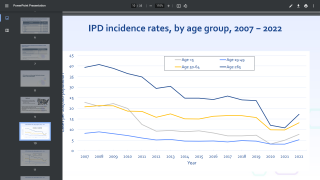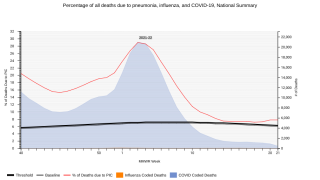Most Children With Pneumonia Not Receiving Amoxicillin
The Pediatric Infectious Diseases Society of America guidelines recommend amoxicillin as a first-line therapy for children with community-acquired pneumonia (CAP).
But, most kids diagnosed with CAP are receiving macrolides and broad-spectrum antibiotics, according to a study published in Pediatrics.
Of the 10,414 children who met the study criteria, 40.1% received amoxicillin, 42.5% received macrolides, and 16.8% received broad-spectrum antibiotics ( amoxicillin-clavulanic acid).
Children were more likely to receive macrolides than amoxicillin if they were 5 years or older, had private insurance, or had a history of asthma or prior antibiotic exposure.
The children who were more likely to receive broad-spectrum antibiotics than amoxicillin were seen at suburban practices, or had prior antibiotic exposure.
“Although age and prior antibiotic use were appropriate drivers of prescribing patterns, sociodemographic factors including insurance status and practice location that should not be correlated with bacterial etiology were also associated with antibiotic choice,” the study authors wrote.
Pneumonia is treatable, but spotting the infection early is a challenge. The disease has multiple symptoms that can lead people to think their illness is nothing more than the common cold or flu.
“It’s a tough disease to diagnose,” says Marie Budev, DO, a pulmonologist and the Medical Director of Cleveland Clinic’s lung transplant program. “Both can have the symptoms of coughing, fever and chest pain.”
Vaccines are available that can help prevent pneumococcal disease, which is any type of infection caused by Streptococcus pneumoniae bacteria.
The pneumococcal vaccine is a shot that helps protect against some of the more than 90 types of pneumococcal bacteria, according to the CDC.
There are two kinds of pneumococcal vaccines available in the United States:
- For children — pneumococcal conjugate vaccine.
- For adults 65 years and older (and also anyone at high risk for disease who is over age 2) — pneumococcal polysaccharide vaccine.
The CDC Vaccine Price List provide current vaccine contract prices.
The authors of this research did not disclose any conflicts of interest.
Our Trust Standards: Medical Advisory Committee
- Variability in Antibiotic Prescribing for Community-Acquired Pneumonia
- Study: Many physicians not following prescribing guidelines for pneumonia
- Inappropriate Antibiotic Prescribing: Wind at Our Backs or Flapping in the Breeze?
- Impact of a National Guideline on Antibiotic Selection for Hospitalized Pneumonia
- The Management of Community-Acquired Pneumonia in Infants and Children Older Than 3 Months of Age: Clinical Practice Guidelines

























